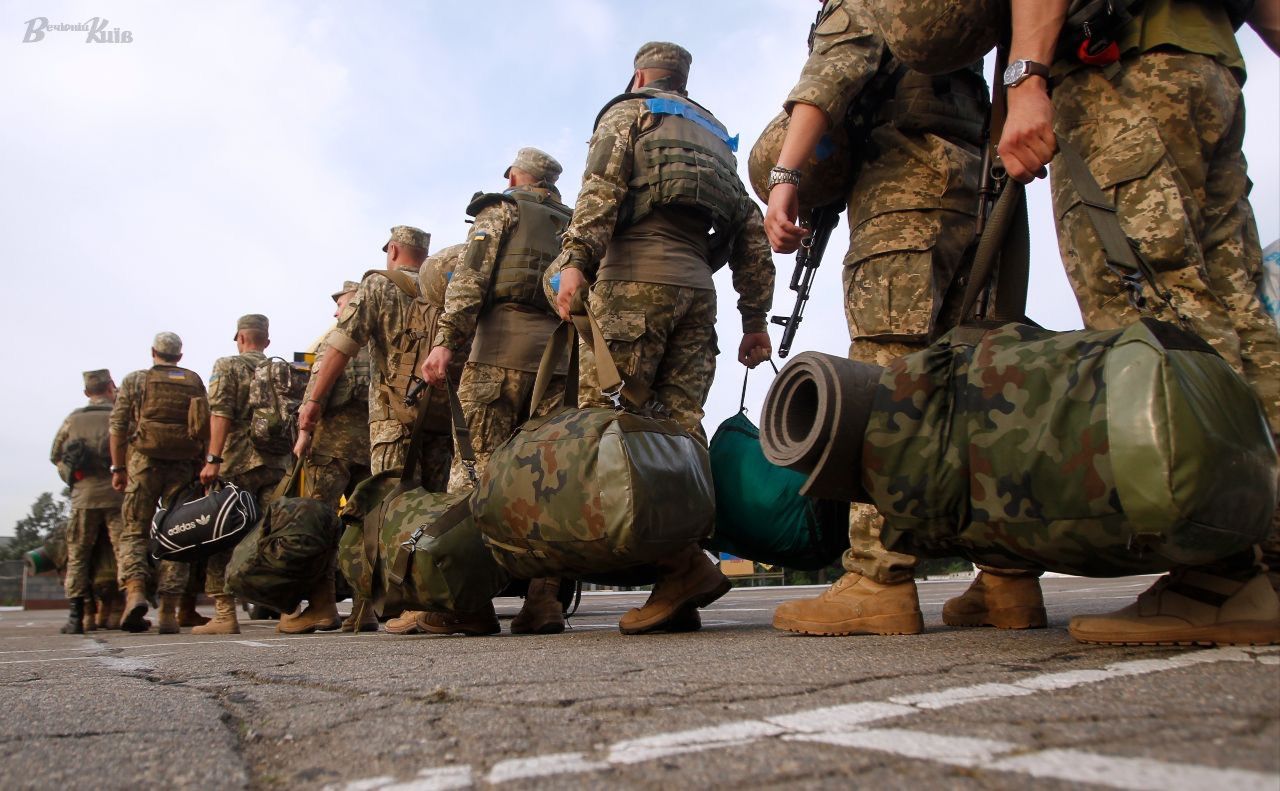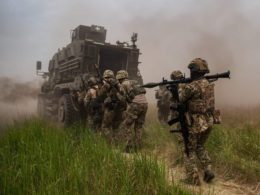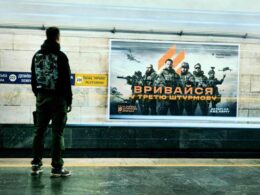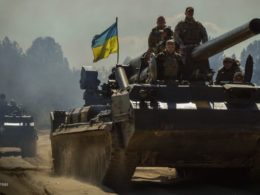The queues of volunteers signing up for the draft from the early days of the invasion are all but gone. Many soldiers deployed to the front have only several days of vacation per year as their families increasingly demand that defending the motherland become a truly common obligation.
This is because Ukraine's current law contains many reasons exempting a person from mobilization duty and doesn't specify the service timeline, making it essentially an endless volunteer commitment.
Now, an increasing number of Ukrainians demand justice for soldiers fighting for two or more years, while army commanders of various levels warn that if parliament doesn't adopt a new mobilization law, the shortage of personnel can become critical.
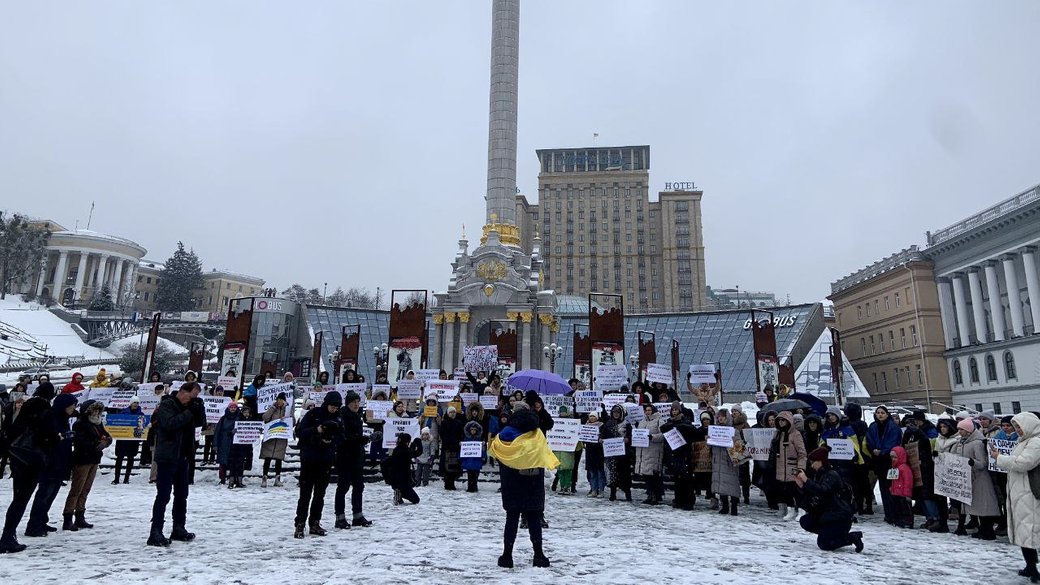
Why de-jure obligatory mobilization is largely a volunteer service
The current mobilization law was adopted back in the 1990s when few believed there would be a war. Due to numerous exemptions from mobilization, the law in practice meant that "obligatory" mobilization became at least half-voluntary.
According to the current law, the mobilization duty applies to men aged 27 to 60.
However, those who didn't want to serve could easily refer to health issues or ill relatives. They could enroll in university or take care of their old parents with disabilities – all these were legal reasons to receive postponement from mobilization. All state bureaucracy staff and officials, all teachers at schools and universities, and some medical workers also had an official mobilization postponement. Just like workers at the so-called "critical infrastructure," which included many services such as city transport and even parking inspection. Finally, fathers of three or more children also were exempt from duty.

Although many could easily find a legal excuse to avoid mobilization, over one million Ukrainians joined the army in the first months of the Russo-Ukrainian war – some coming to the enlistment offices themselves and some immediately after the first call.
After two years of exhausting battles, military officials and ordinary soldiers demand replenishment.
This is not only to replace killed and wounded in action. Many soldiers also now have critical health issues after two years spent in the trenches, eating mostly canned food and sleeping in dugouts. They also need the possibility of at least short rotations, which are not possible everywhere due to a shortage of personnel.
Finally, to conduct offensive operations, Ukraine needs more reserves.
The new draft law is expected to make mobilization rules stricter
The government submitted a draft law to parliament and the public on 25 December 2023. However, after three weeks of hot debates, the bill was returned to the government for revision and finalization and submitted again on 30 January 2024.
Ukraine's parliament made the first step towards mobilization reform on 16 December 2023, adopting the law on the digital register of conscripts.
This register will synchronize information about recruits from different databases, providing military enlistment offices with more up-to-date and accurate information. It will help the offices reach out to people living outside of their official address, which was a problem previously.
This digital register will also accelerate all administrative services for already mobilized people, including certificates of participation in combat actions.
However, the parliament still has to adopt the main mobilization law.
Parliament is slated to debate the revised mobilization bill on 6 February 2024 when the new legislative session commences, as the draft law remains the most contentious issue on the agenda.
- The initial draft proposed cutting the number of exemptions from mobilization, lowering the minimum mobilization age from 27 to 25, and imposing harsher penalties for draft evasion.
- Another measure was introducing an electronic system of notifications for conscripts and setting the maximum length of service at three years.
- Finally, it proposed to introduce basic military training for all Ukrainians so that they would be ready for possible mobilization.
The MPs' main concerns were related to the proposed extended functions of military enlistment offices and the draft allowing them to freeze the property of those who failed to arrive upon a call.
Why compulsory mobilization is necessary for Ukraine to beat Russia
Compulsory mobilization is needed to replenish losses and prepare reserves for the Ukrainian offensive. But it is also necessary to connect the rear and the front, making the entire society work for the war effort. Last but not least, it would provide soldiers fighting the entire war with at least some temporary rest and recovery.
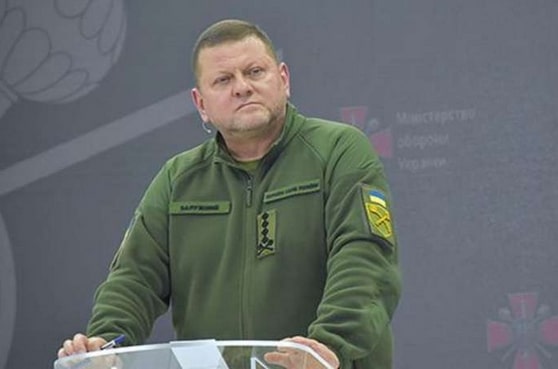
A Ukrainian breakthrough is possible only with a sufficient number of troops, significantly larger than at least 400,000 Russians deployed in Ukraine.
Moreover, as Ukrainian Commander-in-Chief Valeriy Zaluzhnyi mentioned, additional troops may be needed for defensive operations if Russians prepare reserves and attack from new directions, such as the northern border.
Finally, under current laws, mobilization can continue indefinitely with no set end date as long as martial law remains in effect, creating tremendous unfairness and divide between soldiers and civilians.
At the outset of war, society rallied together behind the war effort. But as the frontline solidified, civilians retreated to their personal lives while fatigue and casualties mounted for frontline troops. Troops who enlisted two years ago when Russia's full invasion began continue serving without the prospect of even a few months rest. Though officially allotted 30 vacation days annually, soldiers seldom obtain such respite.
"Last year, I had a vacation for four days. On 30 December, they called me to go back the next day. At three in the morning, that is, on New Year's morning, I was already returning to the position," says Runa, a servicewoman of the 56th brigade, in her interview with Hromadske.

She emphasizes that "military personnel also have families, children, and they also want to go home," adding that she does not condemn only those men who are more useful in the rear by purchasing and driving cars to the frontline or providing other volunteer help.
She says that the Armed Forces of Ukraine need some reinforcement and at least partial replacement because there are not enough people now, especially in the infantry.
Only 7% of working-age Ukrainians are serving. Can Ukraine maintain a larger army?
Numerically, Ukraine still retains a vast reserve pool for potential mobilization. Roughly 31 million people live in Ukraine, down from 38 million before the war. Of them, nearly 15 million are of working-age; among these, almost 5 million are men eligible for mobilization based on age and health status.
But only about 1 million are currently serving, of whom presumably a few hundred thousand are frontline fighters bearing the most harrowing war toll. The publicly announced number of 880,000 servicemen includes rear support and numerous military units patrolling rear areas and borders.
Mobilization of women could also be considered, especially given that the army needs not only infantry but also different specialists.
Currently, only about 5% of military personnel in the Ukrainian army, or 43,000, are women – those who signed contracts voluntarily. The compulsory mobilization of women was taken off the table in December 2023 when Zelenskyy rejected it during his press conference, saying he would not sign such a law even if parliament adopted it.
He also said funds are the main limiting factor to mobilizing additional troops. Financial aid that Ukraine receives from partners is spent only on social support, education, and healthcare. At the same time, all soldiers' salaries, equipment, food, fuel, and ammunition are paid from Ukraine's budget. Ukraine spends over 80% of all taxes on defense.
“I also want to defend civilians for one second,” Zelenskyy said during his press-conference. “When we are talking about mobilization, it takes six civilians paying taxes to provide for one fighter.”
Later, during the interview with a journalist from the German TV channel ARD in Kyiv, Zelenskyy said that Ukraine lost nearly 7 million people as emigrants due to the war. Some of them were also men who left the country illegally or used exempts in the current law to leave. This means not only a lack of reserves for the army but also a lack of workers and taxpayers to support the country's economy and the withdrawal of money from Ukraine to the countries where refugees took their savings. Therefore, Zelenskyy hinted it would be right if the EU support for such alleged "refugees" was redirected to support Ukraine.
Ukraine squeezes every last drop for defense in 2024 budget, Russia still 2.5x more
Trending Now
Still, speaking about full staffing of existing units and establishing fixed terms of service, rest, and rotation, additional mobilization is not only financially and demographically possible but also a must.
Human rights issues regarding mobilization in Ukraine
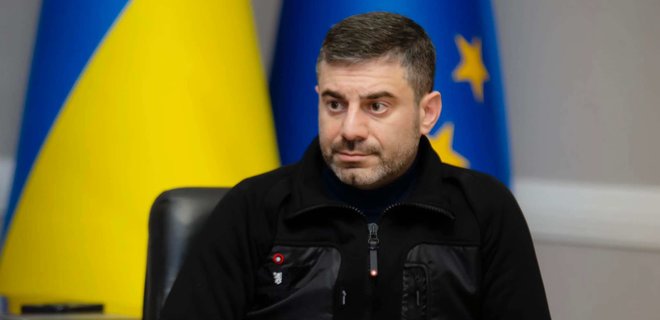
Ombudsman for Human Rights Dmytro Lubinets named provisions of the draft law which, in his opinion, violate the Constitution of Ukraine.
In particular, he said, the proposed draft would allow military enlistment offices to freeze property of those failing to arrive on the call. Although likely a practical measure, it would give enlistment offices, which are part of the military, the power to conduct law enforcement functions and limit the rights of citizens, contradicting the Constitution. Lubinets does not oppose such measures but highlights that other agencies, not the military, should perform this role.
"We have bodies that check the documents of Ukrainian citizens, primarily the National Police, the State Border Service, and the National Guard. But definitely not the military," Lubinets said.
The speaker of the Ukrainian Parliament, Ruslan Stefanchuk, named similar concerns. He said that the main problems of the previous draft included the possibility of military enlistment offices freezing the assets of those avoiding service.
"We heard the military, the military heard us, we continue to work on preparing the right legal mechanism for mobilization," Stefanchuk stated.
Another proposal was to limit the rights of Ukrainians who fled abroad from mobilization and failed to arrive at the military enlistment offices—in particular, freezing their assets in Ukraine and also depriving them of Ukrainian citizenship.
As the former judge of the Ukrainian Constitutional Court, Viktor Shyshkin, explained, the state cannot deprive citizens of citizenship – this contradicts the Constitution. According to Article 25 of the Constitution of Ukraine, citizens of Ukraine cannot be deprived of citizenship. They can only change their citizenship at their own will.
"Conversations about this are provocative. We need to look for other forms of solving this problem," said Shyshkin.
But he also added that the current law on mobilization was adopted more than 30 years ago during the presidency of the first Ukrainian president, Leonid Kravchuk. The main focus of the law was on categories of people who are exempt from mobilization duties rather than the effectiveness of mobilization to staff the army:
"The Constitution was also written by politicians, among whom no more than ten people thought about a possible war. The law is written, roughly speaking, with the left hand under the right knee. The politicians of that time did not see any external threats: they called Russia a friend, and they gave it both our missiles and airplanes. When the war began, it became clear how flawed this mobilization law was. But I also call the current numerous draft laws on mobilization irresponsible," Shyshkin said.
What Zelenskyy, Zaluzhnyi, and other politicians say
"We cannot afford war fatigue. If we get tired, we will lose what we have," Ukraine's President Volodymyr Zelenskyy said in his interview for Channel 4 News.
The new law on mobilization is, first of all, about justice, he said, reiterating that mobilization is necessary so that people who have been at war since the first day can rest.
And finally, "it is unfair to dodge mobilization when someone dies for you," Zelenskyy said. "That is why the whole story about mobilization is, first of all, a question of justice."
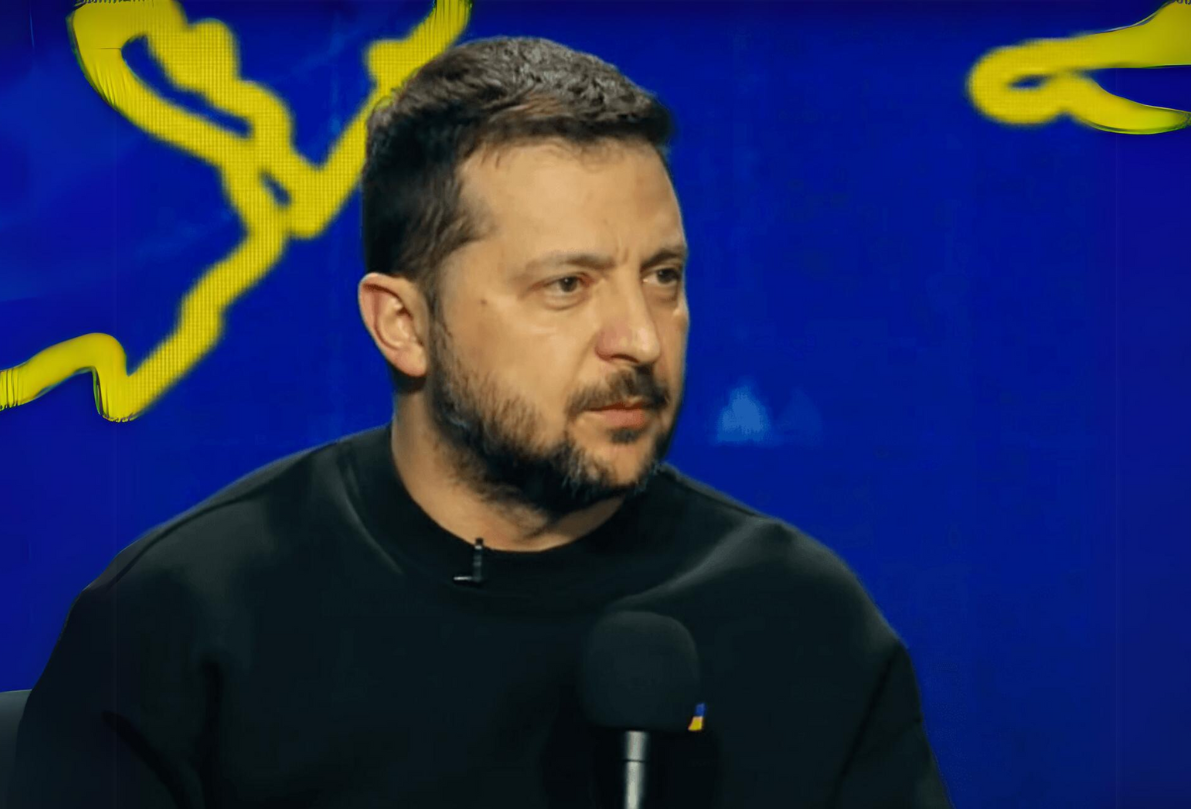
However, Zelenskyy avoided taking political responsibility for the law, saying that it was the military leadership who requested additional mobilization.
It appears he tries to satisfy all parts of society by saying both that new mobilization rules are needed and that taxpayers working in the rear also contribute a lot to victory.
Ukrainian media even wrote about a proposal considered by the Presidential office and the government to exempt a man from mobilization if he pays lots of taxes. However, it was never mentioned officially. This approach has struck a nerve with many Ukrainians, exacerbating grievances about perceived social inequality, which allegedly drives the poor to the trenches while the rich can buy their way out.
In turn, Ukraine's Commander-in-Chief, Valeriy Zaluzhnyi, gave a large press conference on the topic of mobilization on 26 December 2023. The fact that it was his first press conference since the beginning of the full-scale invasion indicates the issue's significance. Zaluzhnyi emphasized that mobilization is needed to enlarge the armed forces, ensure rotations, and conduct planned operations. It is also a response to Russia's ongoing mobilization. https://euromaidanpress.com/2023/12/26/ukraines-commander-in-chief-addresses-mobilization-and-frontline-situation-in-briefing/?swcfpc=1
Zaluzhnyi also mentioned that the General Staff lacks the right to legislative initiative and has not submitted any documents to the government. The government and parliament are responsible for preparing a legal framework for mobilization and providing resources, while the army's function is only to fight, Zaluzhnyi said.
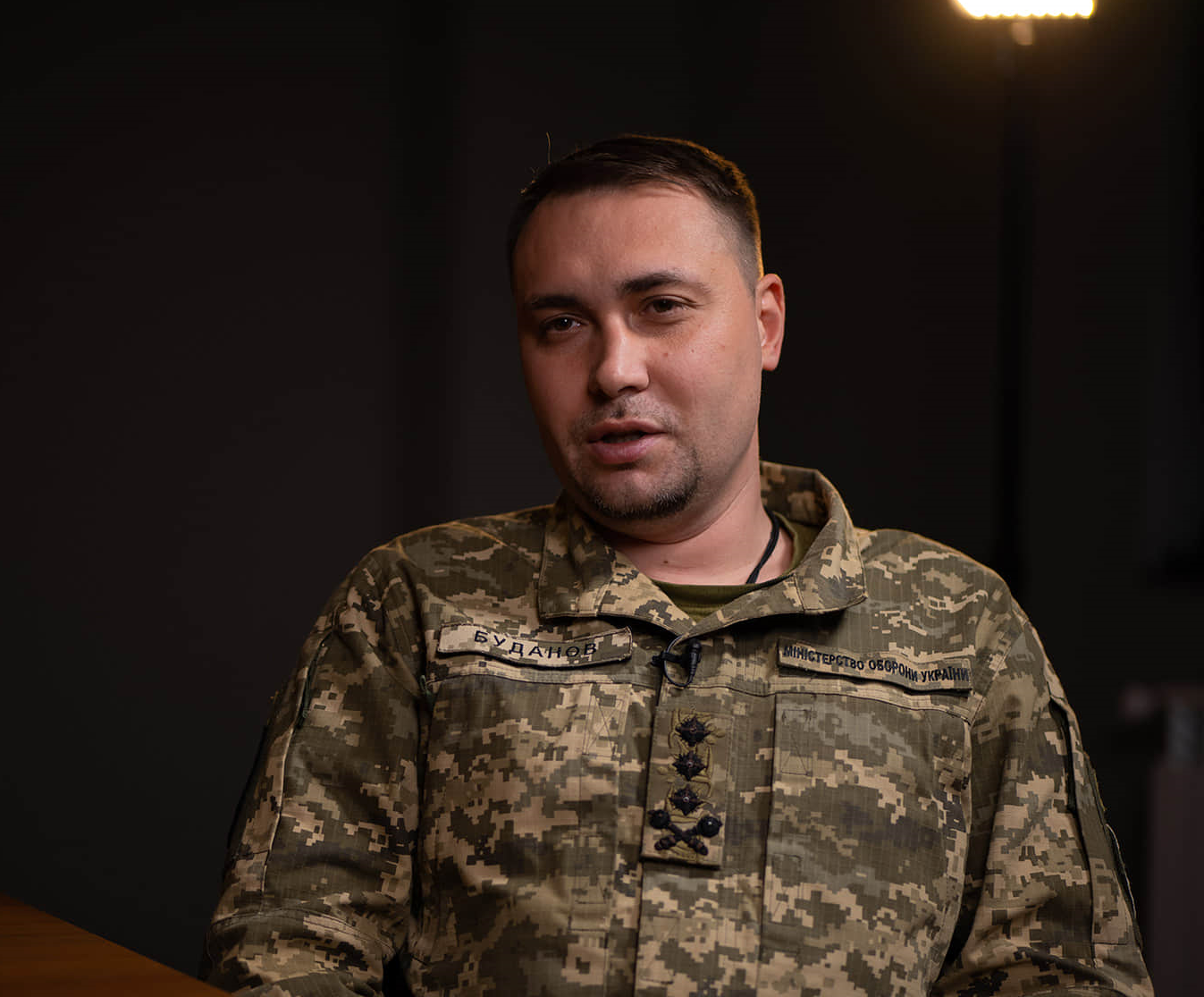
In an interview with the Financial Times, the head of the Ukrainian military intelligence, Kyrylo Budanov, supported the mobilization reform, saying, "It is impossible even to imagine that we will be able to do without mobilization." According to him, there needs to be more personnel in the ranks of Ukrainian troops.
Budanov repeated the call of the Ukrainian Commander-in-Chief Zaluzhnyi to increase the number of recruits. During the conversation, he wanted to avoid making bold predictions for the current year, saying only that he hopes Ukraine's success will be greater than Russia's in 2024.
Deputy Minister of Defense Nataliia Kalmykova said on TV that approving the new mobilization law is "a matter of weeks." Its implementation is expected to begin in about a month. She also said the Ministry of Defense is already preparing drafts of decrees necessary to implement the law after its adoption. However, the new version of the law has yet to be submitted to the parliament by the Cabinet, and it is unclear whether MPs will vote for it within the mentioned terms.
Lawmakers already discussed the new law with Kalmykova for several days during the committee meeting before the Cabinet withdrew it for finalization on 11 January 2024. Ukraine's Commander-in-Chief Valeriy Zaluzhyi and Minister of Defense Rustem Umerov were also at the committee meetings, one of the participants told Ukrainska Pravda.
Recruitment campaign
While parliament and government prepare the law's final version, servicemen of various ranks are addressing the society, saying that Ukrainians should already start preparing for full-scale mobilization.
Trying to handle the shortage of staff in the army, the government launched a new recruiting campaign in November 2023 in cooperation with job-search platforms. Within the program, every recruit can freely choose the unit and position where he wants to serve. This is the program's benefit compared to mobilization since the mobilized soldier would be sent not where he wants but where the enlistment office decides.
In the last three months, dozens of thousands of Ukrainians submitted applications to join the army, mostly elite units, according to job-search platforms. It is expected that as soon as the new mobilization law is adopted, the number of recruits participating in this program will further increase.
Read more:
- Ukraine passes law to enhance military readiness and veteran welfare
- Intel: Russia intensifies forced mobilization in occupied territories of Ukraine
- Ukraine’s Commander-in-Chief addresses mobilization and frontline situation in briefing
- Zelenskyy: Military proposes to mobilize up to 500,000 more people
- Russian authorities seek to suppress small-scale dissent among soldiers’ wives – UK intel
- Danilov warns of possible total mobilization in Russia after 2024 presidential election
"Last year, I had a vacation for four days. On 30 December, they called me to go back the next day. At three in the morning, that is, on New Year's morning, I was already returning to the position," says Runa, a servicewoman of the 56th brigade, in her interview with Hromadske.
“I also want to defend civilians for one second,” Zelenskyy said during his press-conference. “When we are talking about mobilization, it takes six civilians paying taxes to provide for one fighter.”
"We have bodies that check the documents of Ukrainian citizens, primarily the National Police, the State Border Service, and the National Guard. But definitely not the military," Lubinets said.
"We heard the military, the military heard us, we continue to work on preparing the right legal mechanism for mobilization," Stefanchuk stated.
"Conversations about this are provocative. We need to look for other forms of solving this problem," said Shyshkin.
"The Constitution was also written by politicians, among whom no more than ten people thought about a possible war. The law is written, roughly speaking, with the left hand under the right knee. The politicians of that time did not see any external threats: they called Russia a friend, and they gave it both our missiles and airplanes. When the war began, it became clear how flawed this mobilization law was. But I also call the current numerous draft laws on mobilization irresponsible," Shyshkin said.
"We cannot afford war fatigue. If we get tired, we will lose what we have," Ukraine's President Volodymyr Zelenskyy said in his interview for Channel 4 News.
And finally, "it is unfair to dodge mobilization when someone dies for you," Zelenskyy said. "That is why the whole story about mobilization is, first of all, a question of justice."

